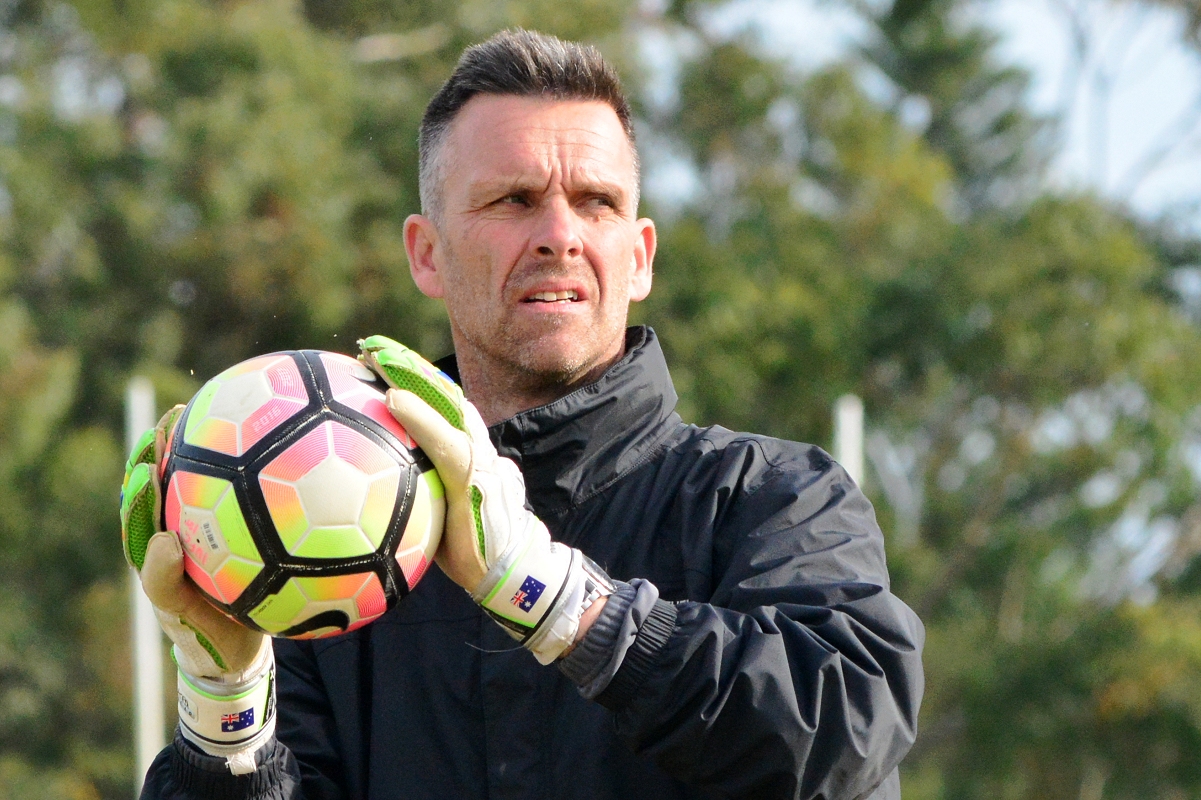First to be blamed, last to be credited – that’s the life of a goalkeeper. A striker can run around missing opportunities for 90 minutes but his stoppage time finish makes him the hero. A goalkeeper on the other hand can make brilliant saves throughout the game yet his one and only blunder makes him the villain.
Inglewood United coach David Whalley knows the territory all too well. Whalley spent twenty years playing in England, where as a teenager he was on the books of Blackburn Rovers. He has been coaching at all levels of the game for close to two decades and is one of a small number of coaches in Australia to hold the Advanced FFA Level 2 Goalkeeping award.
Down the years a host of shot-stoppers have benefitted from Whalley’s experience, knowledge and guidance. That list includes internationals Carly Telford (England), Tine Cedervister (Denmark), Mackenzie Arnold, Mark Birighitti, Tando Velaphi and Chris Barty (Australia) plus local performers Alex Dunn (Inglewood), Devon Spence (Bayswater City) and Francis Soale (Perth SC).
In the first of a two part question and answer session, Whalley discusses the unique characteristics of the goalkeeper and the position. In the second interview session, which will appear in a fortnight, Whalley provides an insight into how he works with Inglewood’s current goalkeeping stocks.
What makes a goalkeeper? Is it natural ability or something more?
Like in most sports everyone has an opinion on whatever the subject matter is and I believe that there is probably not a definitive answer to ‘What makes a goalkeeper?’ That said, there are a lot of characteristics that I believe an individual need to possess and develop to play in goal.
These include the ability to be able to deal with the ball using the feet and to catch the ball in a variety of different situations. An understanding of where to be positioned in relation to where the ball is on the pitch is vital, as is possessing the mental strength to deal with mistakes and to put those behind you.
Good agility and making quick, correct decisions such as when to advance from or retreat to your goal line is also in there. Then there’s consistently clear communication with your defenders and the ability to inspire your teammates, either by taking a cross through a pack of players or by showing good composure throughout the game.
If you have the self-motivation to improve and are fortunate enough to train in a challenging environment, containing good coaches and mentor figures, then I believe that you have a chance of mastering all the many different skills sets needed to be a goalkeeper.
How do you improve a goalkeeper?
As I work with goalkeepers ranging from 9 years upwards, finishing with (Inglewood first team ‘keeper) Alex Dunn who is in his early 30s, the approach to improving goalkeepers varies slightly.
With the younger players time is spent introducing and developing their ‘set positions’ in relation to where the ball is, different diving techniques, dealing with one-v-ones, receiving the back pass, dealing with crosses, distribution and communication as starting points.
These are worked through on a weekly and age basis and reinforced constantly prior to introducing the next topic. The goalkeeping coach must be able to create game like scenarios for the ‘keeper to train in for them to be able to deal with the various situations that occur in the match.
During these formative years young ‘keepers will make mistakes due to not being comfortable with a situation or technique during the game. To me this is all part of the learning process as it tells myself and their coach how that player is progressing.
The key points of the sessions I use to improve the older ‘keepers does not vary too much from the younger ones. There are obvious differences with the physicality, pace of the ball along with pressure being added to the session earlier. Maybe different coaching points are emphasized more but the basis of the sessions stay the same.




